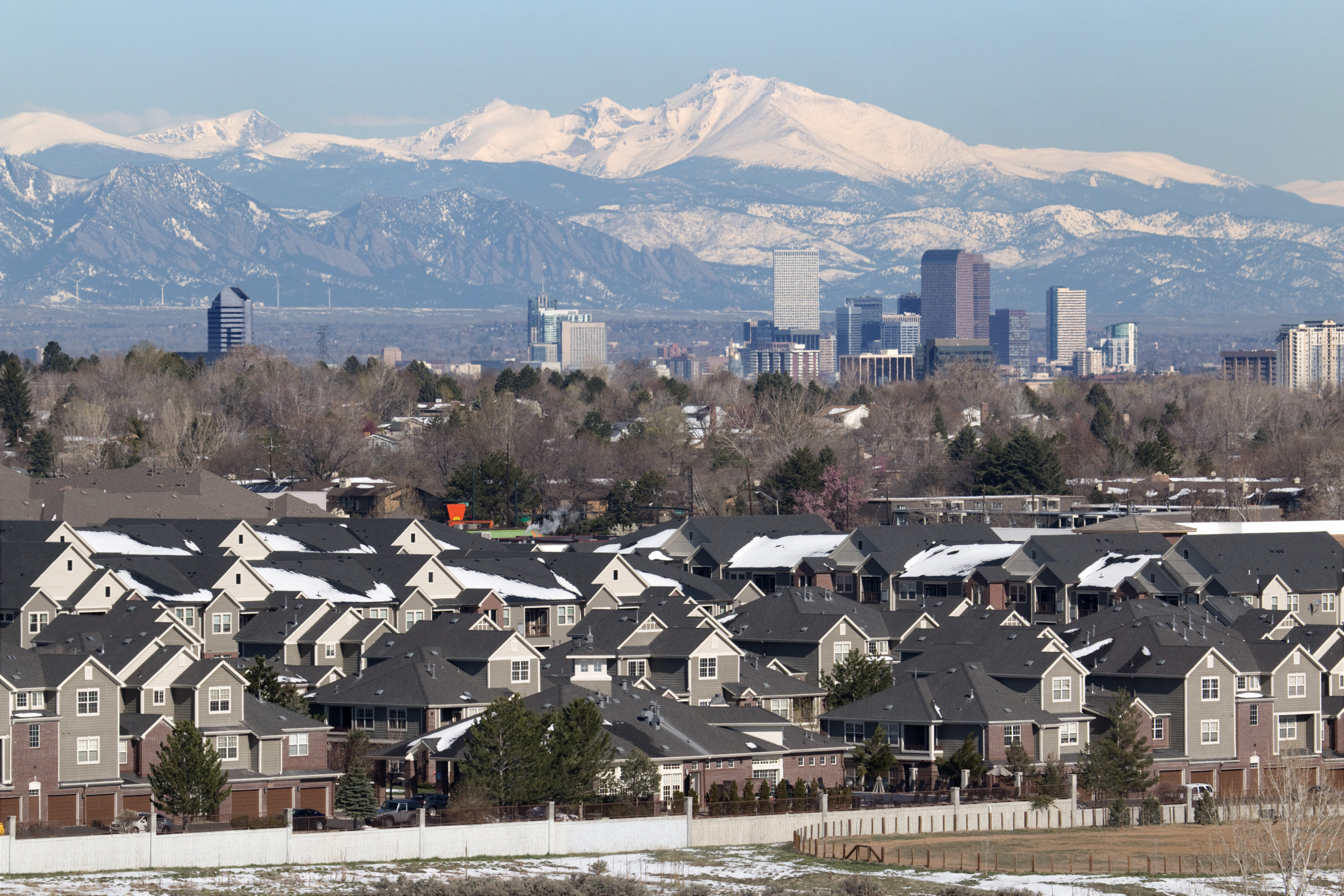by Luke Cronin
Share
by Luke Cronin
Share

Structural engineering is a field essential to constructing safe and stable buildings. Whether dealing with crisp mountain air in Denver or the urban buzz of the city, ensuring buildings stand solid is crucial. Here, we’ll dive into why hiring a structural engineer in Denver can be one of the best decisions you make for your property.
Understanding the Role of a Structural Engineer
A structural engineer isn’t just a person who draws lines on blueprints; they’re the brains behind ensuring those lines turn into safe and resilient structures. In essence, structural engineers are the silent partners in any construction project, whether you’re setting up a cozy residential nook or a sprawling commercial complex.
Primarily, structural engineers focus on making sure the building can support the load demand. Their job might sound simple, but it involves a hefty dose of understanding physics and materials to confirm your structure stands up to whatever nature or usage throws at it. Whether it’s a gusty winter gale or a bustling conference room, your building should stand unwavering.
But their role doesn’t end there. They’re the problem solvers of the construction world. If your walls show cracks or your floors start to tilt, a structural engineer is the detective who figures out whether your building is crying for help. They analyze, assess, and devise strategic solutions to amend any structural faults.
And whether you’re dealing with a home project or a commercial venture, structural engineers are pivotal. For residential projects, they assure your family’s peace of mind, reinforcing the structure’s bones to withstand the test of time and elements. On a commercial front, structural engineers become even more indispensable. They orchestrate the balance between architectural ambition and practical functionality, making sure skyscrapers not only reach dizzying heights but do so safely.
In short, structural engineers transform ambitious sketches into steadfast realities.

When Should You Hire a Structural Engineer?
Knowing when to bring a structural engineer on board can save you time, money, and headaches. If you’re planning to build a new home, their expertise is indispensable. They ensure your design can withstand Denver’s unique environmental factors, like snow loads from its iconic winters. For renovations or extensions, a structural engineer evaluates the existing structure and designs modifications that maintain or improve stability.
Thinking of a foundation inspection? It’s non-negotiable to prevent long-term issues that could threaten your property. Engineers can pinpoint problems like cracks, settlings, or drainage issues that need addressing. Lastly, if you suspect something’s off structurally, hiring an engineer sooner rather than later can prevent minor annoyances from turning into major repairs.
Residential vs. Commercial Structural Engineering
When it comes to the world of structural engineering, not all projects are created equal. The demands of a quaint cottage differ vastly from those of a sprawling office complex. Residential and commercial structural engineers each have their own specializations, honed to address the unique needs of these varied environments.
Residential structural engineering revolves around domestic spaces. Think homes, duplexes, and townhouses. Here, engineers focus on the nitty-gritty of individual living spaces—ensuring that your cozy Denver home can withstand the unpredictable whims of local weather, from heavy snowfalls to gusty mountain winds. They consider factors like load-bearing walls and the integrity of the foundation, working to create safe and comfortable living conditions.
On the other hand, commercial structural engineering operates on a larger scale. Picture multi-story office buildings, shopping centers, and industrial spaces. These projects not only require intricate planning but also robust designs that can support heavy usage and complex mechanical systems. Engineers in this domain tackle greater challenges involving more stringent compliance standards, often coordinating with a larger team to ensure all aspects of the building function seamlessly together.
So why is it beneficial to zero in on one specialty? By hiring a residential structural engineer, you gain the expertise needed to optimize a home’s resilience against environmental stressors, preserving both its market value and charm. Meanwhile, a commercial structural engineer brings a wealth of knowledge vital for ensuring that large buildings meet safety regulations and operational demands, ultimately safeguarding your investment and business operations.
In essence, while structural engineering is all about ensuring stability and safety, the scope and specifics vary greatly between residential and commercial projects. Knowing these distinctions helps in engaging the right expert for your particular project, setting the stage for success.
Key Services Provided by Structural Engineers
Structural engineers offer a variety of services critical to ensuring the safety and integrity of buildings. Below, we explore some of the key services provided by these professionals, particularly in locations with unique environmental challenges such as Denver.
Structural Engineer Foundation Inspection
Foundation inspections are essential for maintaining a building’s longevity and safety. This is especially true in areas like Denver, where unique soil conditions and climate make such inspections even more crucial. Key aspects of a foundation inspection include:
- Assessment of the foundation: Look for signs of damage like cracks, settling, or moisture issues.
- Recommendation of solutions: If problems are detected, solutions may range from simple repairs to complex stabilization methods.
Early detection of issues can prevent costly repairs in the future, making this an essential service for any property owner.
Structural Foundation Assessments
Foundational assessments go beyond initial inspections, offering a comprehensive overview of a building’s health. These assessments evaluate:
- Soil composition
- Drainage systems
Such evaluations ensure that all elements work together for long-term stability. By identifying potential risks, structural engineers provide preventive measures to protect properties against unpredictable weather patterns common in Denver.
Structural Engineer Home Inspection
If you are considering purchasing property, a structural engineer home inspection should be a priority. These inspections:
- Investigate critical systems: Uncover issues that may not be visible to an untrained eye, such as aging support beams or improperly aligned walls.
- Guide your decisions: Knowledge of potential problems can enhance negotiating power or offer reassurance about a sound investment.
In summary, structural engineers provide crucial insights and recommendations that are vital for both current property owners and prospective buyers, ensuring safety and peace of mind.
Questions to Ask Before Hiring a Structural Engineer
When you’re on the hunt for a structural engineer, going in with the right questions is crucial. Start with their experience and specializations. Asking, “How many years have you been working in this field?” or “Do you have any experience with projects similar to mine?” can quickly assess if they’ve walked the walk.
Dive into their workflow next. Get specifics like, “What’s your approach to problem-solving in complex projects?” or “How do you handle unexpected challenges on a job?” These queries help determine their adaptability and problem-solving prowess.
Don’t skip on references. “Can you provide examples or references from past clients?” is a solid question to gauge reliability. Checking feedback gives you insight into their track record and client satisfaction.
Ensure their qualifications match your project’s needs. Ask, “Do you hold any certifications or licenses specific to Colorado?” This confirms they’re legit and understand local building codes and regulations.
Finally, cover logistics. Queries like, “What’s your estimated timeline for completing a project like mine?” or “How do you prefer to communicate during a project?” ensure clear expectations and smooth communication throughout the process.
By ticking off these questions, you’ll not only find an engineer who fits your project like a glove but also one who can assure solid ground beneath it.
Understanding Costs: How Much Does a Structural Engineer Cost?
When it comes to hiring a structural engineer in Denver, cost is a crucial factor that can vary widely based on several elements. Here’s what to consider:
Key Factors Affecting Costs
- Scope of the Project
- Simple Home Inspections: Typically less expensive than comprehensive assessments.
- Comprehensive Assessments: Often needed for commercial structures, resulting in higher costs.
- Complexity of the Work
- Custom Designs or High-Rise Projects: These can increase costs due to additional expertise and time.
- Challenging Terrain: Sites with difficult access may require extra engineering effort and therefore higher fees.
- Experience and Reputation of the Engineer
- Highly Experienced Engineers: May charge more, but their expertise can prevent costly mistakes, potentially saving money in the long run.
- Regional Factors
- Location-Specific Costs: Areas like Denver, with diverse building environments from urban to mountainous, can impact pricing based on accessibility and local regulations.
Tips for Managing Costs
- Compare Multiple Quotes: Obtain several estimates to understand what’s reasonable in your area.
- Evaluate Experience: Consider the engineer’s track record and expertise, not just the price.
For a detailed breakdown of costs specific to Denver, check out this resource: Denver Structural Engineer Cost.
Tips for Hiring the Right Structural Engineer
When it comes to hiring a structural engineer in Denver, getting it right the first time is crucial. Below are some straightforward tips to ensure you land the perfect professional for your project.
1. Check Their Credentials
- Ensure they have a valid license to operate in Denver.
- Verification can be done through the state’s licensing board.
2. Consider Experience
- Look for a seasoned professional for serious projects.
- Ask about past work, especially projects similar to yours.
- Experience with similar projects means familiarity with potential challenges and solutions.
3. Evaluate Communication Skills
- Gauge their responsiveness and clarity.
- Ensure they are easy to reach and can explain technical terms so you can understand.
- Good communication helps avoid misunderstandings and keeps the project running smoothly.
4. Don’t Skip the References
- Reach out to past clients to assess the engineer’s reliability and work quality.
- A glowing reference could be the reassurance you need.
5. Consider Costs Carefully
- While costs matter, don’t let it be the only factor.
- The cheapest option might lead to cutting corners, which is risky in structural engineering.
- Focus on quality and expertise alongside cost.
For a more detailed guide, check out What to Look for When Hiring a Structural Engineer.
Conclusion: The Value of Expertise
In the grand scheme of property ownership and development in Denver, the expertise of a structural engineer is invaluable. By hiring a structural engineer, you are investing in safety, compliance, and the longevity of your project. Whether navigating the quirks of the local terrain or managing intricate urban constructions, these professionals bring a wealth of knowledge that ensures your building stands the test of time. They catch critical issues early, guide you through complex construction codes, and ultimately provide peace of mind. When every detail matters, having an expert on board is not just a wise choice—it’s essential.

